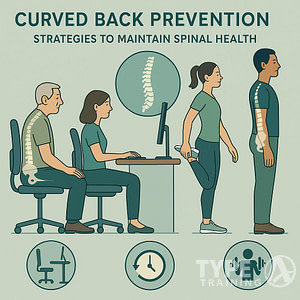If you’re searching for natural ways to enhance your sleep quality, magnesium might be the answer for you.
Magnesium acts as a natural relaxant, helping to calm your nervous system and prepare your body for restful sleep.
This mineral not only helps you relax but also supports longer and better-quality sleep, allowing you to wake up feeling more refreshed.
Popular posts:
Exploring how magnesium impacts relaxation and sleep, you’ll find that it helps by relaxing your muscles and promoting a sense of calmness.
Foods such as nuts, leafy greens, and whole grains are excellent sources of magnesium.
Additionally, supplements might be effective, but consulting with a healthcare provider is recommended to ensure they meet your specific needs.
To optimize its benefits, you might consider magnesium glycinate, a popular choice known for its sleep-supporting properties.
Taking the right amount, ideally between 200 to 400 mg about an hour before bedtime, can significantly improve your night’s rest.
With these insights, you can make informed decisions about incorporating magnesium into your routine to achieve more relaxation and restful sleep.
The Importance of Magnesium for Body Functions
Magnesium plays a crucial role in numerous bodily functions. It supports your nervous system, aids in muscle relaxation, and regulates
Role in the Nervous System
Magnesium is integral to your nervous system and is involved in neurotransmitter release.
It helps modulate the signals that travel between your brain and body, ensuring efficient communication.
This mineral is essential for the normal functioning of your nervous system, playing a key role in preventing neurological disorders.
It also contributes to the production of serotonin, which is linked to mood regulation and can potentially ease symptoms of anxiety.
Magnesium and Muscle Relaxation
Magnesium acts as a natural muscle relaxant.
It helps your muscles interact with calcium, which contracts muscles, while magnesium helps them relax.
This balance is crucial for preventing cramping and maintaining muscle function.
By supporting muscle relaxation, magnesium can aid in reducing discomfort and tension, making it easier for you to unwind and recover, especially after physical activity.
Magnesium’s Influence on Blood Pressure
Maintaining healthy
Magnesium helps regulate
This is achieved by assisting in the dilation of blood vessels and preventing spasms that can lead to hypertension.
Including optimal magnesium levels in your diet can support a healthier heart function and reduce the risk of complications associated with high
Magnesium and Sleep Mechanisms
Magnesium plays a crucial role in facilitating relaxation and improving sleep.
It influences the body’s natural rhythms, aids in hormone regulation conducive to sleep, and enhances neurotransmitter effectiveness to ensure quality rest.
Regulation of the Sleep-Wake Cycle
Magnesium is essential for the proper functioning of the sleep-wake cycle.
It interacts with the body’s biological clock, which controls when you feel sleepy or alert.
Magnesium helps stabilize mechanisms that contribute to restful sleep by maintaining balance at the cellular level.
Deficiencies may disrupt this natural cycle, leading to insomnia or irregular sleep patterns.
Integrating magnesium-rich foods such as leafy greens, nuts, and whole grains into your diet supports regular sleep habits and restores balance within your circadian rhythm.
Promotion of Melatonin Production
Melatonin, a hormone responsible for regulating sleep, benefits considerably from magnesium.
Magnesium supports the body’s natural production of melatonin, which signals the brain to prepare for sleep.
By boosting melatonin levels, magnesium acts as a natural sleep aid, helping you fall asleep more easily.
Magnesium supplements may be beneficial if your lifestyle or diet doesn’t provide sufficient amounts.
Consult with a healthcare provider before introducing such supplements to ensure they meet your specific sleep needs.
Interaction with GABA and Sleep Quality
Gamma-Aminobutyric Acid (GABA) is a neurotransmitter essential for calming the nervous system and promoting relaxation.
Magnesium increases GABA activity, which helps quiet neural activity, allowing your mind to relax and fostering sleep quality.
Low GABA levels may contribute to insomnia and restlessness.
By enhancing GABA function, magnesium can improve sleep quality.
This makes it a valuable addition to nighttime routines, especially if anxiety or stress disrupts your rest.
Consuming magnesium through foods or supplements can be effective in promoting sustained, restful sleep.
Magnesium Deficiency and Sleep Disorders
Magnesium deficiency can interfere with your sleep and may contribute to sleep disorders.
Common causes of magnesium deficiency include insufficient dietary intake, certain medications, and digestive disorders that hinder absorption.
You might be consuming foods that are deficient in magnesium, leading to potential imbalances in your body.
Symptoms of magnesium deficiency related to sleep can manifest as insomnia or restless leg syndrome.
You may notice difficulty falling or staying asleep or experience uncomfortable sensations in your legs during periods of rest.
Addressing these deficiencies might help alleviate these symptoms.
Individuals with existing sleep disorders often experience a higher prevalence of magnesium deficiency.
It’s essential to be aware of the correlation between magnesium levels and sleep health to ensure you’re maintaining adequate mineral intake.
Incorporating magnesium-rich foods like leafy greens, nuts, and whole grains into your meals can benefit overall sleep quality.
It can be helpful to use a simple table for tracking dietary sources:
| Food | Magnesium Content |
|---|---|
| Spinach | High |
| Almonds | Moderate |
| Whole Grains | Moderate |
Consider speaking with a healthcare provider if you suspect a deficiency.
They might recommend supplements based on your specific needs.
Consult your doctor before making significant changes to your dietary regimen to address any deficiency effectively.
Dietary Sources of Magnesium
Leafy greens are excellent sources of magnesium. Spinach, kale, and Swiss chard each provide a substantial amount.
Including a serving of these greens in your meals can help increase your magnesium intake. You can easily add them to salads, smoothies, or sautés for a nutritious boost.
Nuts and seeds are another great way to incorporate magnesium into your diet. Almonds, cashews, and pumpkin seeds are particularly rich in magnesium.
Snacking on a handful of these nuts or adding seeds to yogurt or oatmeal provides a tasty way to boost your mineral intake.
Whole grains like brown rice, quinoa, and whole wheat bread also contribute to your daily magnesium needs.
Switching from refined grains to whole grains can enhance your nutritional profile. Consider choosing whole grain options when baking or as the base for meals.
Here’s a simple comparison of magnesium content in some foods:
| Food | Magnesium (mg per serving) |
|---|---|
| Spinach (cooked) | 157 mg per cup |
| Almonds | 80 mg per ounce |
| Brown Rice | 84 mg per cup |
Incorporating these foods into your diet doesn’t have to be difficult.
Try starting your day with a magnesium-rich smoothie using spinach and almond milk. For lunch, include a quinoa salad with mixed greens and sunflower seeds.
These small changes can significantly improve your magnesium levels.
Magnesium Supplementation for Better Sleep
Magnesium plays a crucial role in promoting relaxation and better sleep.
Choosing the right supplement type can affect how well it’s absorbed in your body.
Common types include magnesium citrate, magnesium glycinate, and magnesium oxide.
Among these, magnesium glycinate is often praised for its higher bioavailability, making it a popular choice for sleep improvement.
When considering dosage, experts generally recommend not exceeding 350 milligrams of magnesium per day.
Taking the supplement about 30 minutes before bedtime can enhance its effects.
Always start with a lower dose to see how your body reacts before gradually increasing, if necessary.
It’s important to be aware of potential side effects. Higher doses may lead to stomach upset or diarrhea.
If you experience any adverse effects, consult with a healthcare provider.
As with any supplement, it’s wise to discuss with your doctor before starting magnesium, especially if you have underlying health conditions or are taking other medications.
Tips for Effective Use:
- Start Low: Begin with a lower dosage.
- Timing Matters: Take it 30 minutes before bed.
- Stay Hydrated: Drink plenty of water to aid digestion.
Magnesium Deficiency and Sleep Disorders
Magnesium deficiency can significantly impact your sleep quality.
Common causes of this deficiency include poor dietary intake, certain medications, and medical conditions that affect absorption.
Foods like leafy greens, nuts, and whole grains are rich in magnesium, so it’s important to integrate these into your diet to prevent deficiency.
Symptoms related to sleep due to magnesium deficiency can be quite disruptive. Insomnia, characterized by trouble falling or staying asleep, is commonly linked to low magnesium levels.
Additionally, you might experience restless leg syndrome, a condition causing uncomfortable leg sensations that disrupt your sleep.
It’s not uncommon for those with sleep disorders to have inadequate magnesium levels.
This deficiency can exacerbate issues like sleep apnea and can lead to chronic sleep disturbances.
Research shows that many individuals with sleep disorders might benefit from assessing their magnesium intake.
Addressing a magnesium deficit through diet or supplements may improve sleep quality.
Nonetheless, before starting any supplement regimen, consulting with a healthcare professional is crucial.
This ensures safe and effective management tailored to your specific needs.
Frequently Asked Questions
Understanding how magnesium supports relaxation and sleep can help you make informed decisions about its use.
The questions below address common concerns and information related to magnesium’s effectiveness and usage for improving sleep.
Which form of magnesium is most effective for improving sleep quality?
Magnesium glycinate and magnesium citrate are commonly recommended for sleep.
Magnesium glycinate is known for its calming effects, making it a popular choice. Verywell Health suggests these forms due to their high absorption rates, which can help improve sleep quality.
Can taking magnesium alleviate anxiety and help with relaxation?
Magnesium has a calming effect on the nervous system, which can help reduce anxiety and promote relaxation. This mineral is often used to help relieve symptoms of stress, making it beneficial for those struggling with anxiety-related sleep issues.
It works by supporting neurotransmitter function and regulating adrenaline.
When is the best time to take magnesium to promote restful sleep?
Taking magnesium about 30 minutes before bed is often recommended to maximize its sleep-promoting benefits, according to the Good Housekeeping.
This timing allows the body to absorb the mineral and encourages a state of relaxation conducive to restful sleep.
Is there a recommended dosage of magnesium for enhancing sleep?
Experts commonly suggest a dosage not exceeding 350 milligrams per day to promote sleep.
This ensures the body receives enough to experience benefits without overconsumption. Consulting with a healthcare provider helps ensure the appropriate dosage based on your individual health needs and conditions.
Can magnesium supplementation lead to feeling more awake rather than sleepy?
While magnesium is generally used to promote sleep, individual reactions can vary.
Some people might experience increased alertness or energy if their magnesium levels were previously deficient.
Monitoring your body’s response to supplementation is essential to determine its effects on your wakefulness and sleep patterns.
How quickly can one expect to experience the benefits of magnesium for sleep?
The time it takes to notice benefits can vary. Many individuals report experiencing improvements in relaxation and sleep within a few days to weeks of regular supplementation. Consistency in dosage and timing can contribute to the effectiveness of magnesium in enhancing sleep quality.














